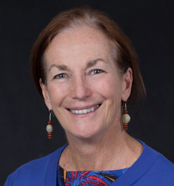
Professor Lyn March
Rheumatology researchers will need to dig deep and wide to unearth the next advances and strategies which will translate into better management of arthritis and musculoskeletal diseases (AMD) in the future.
Despite some conditions now having a plethora of pharmacological treatments, clinicians are still keen for a better understanding of the conditions they see daily and how to best tailor that knowledge for their individual patients.
As well, there is growing recognition that all patients with chronic diseases including AMD will benefit when the workload is better shared between medical and other health disciplines.
The limbic spoke to rheumatologists Professor Lyn March and Professor Susanna Proudman for their thoughts on the priorities for rheumatology in 2023 and beyond.
“Rheumatoid arthritis is certainly one condition where we’ve almost got an overabundance of choices,” Professor March told the limbic.
Professor March, Liggins Professor of Rheumatology and Musculoskeletal Epidemiology Medicine at the University of Sydney, said some of the questions yet to be answered were which was the right drug for patients and should some biologic therapies be used much earlier in some patients.
She said both adult and juvenile arthritis patients have to jump through the regulatory hoops before they can access biologics.
In children, the inflammatory component of the disease can often settle in up to half of cases but not before it has damaged the joints.
“So one of the key things is trying to identify the group of children that are at high risk for a lot of inflammation and working out ways to treat them much earlier so they never damage their joints.”
One of the challenges however in paediatric rheumatology – “hopelessly underfunded and under-resourced” – was having a workforce which could meet the clinical care needs let alone the necessary research.
Professor March, who leads the Australian Arthritis and Autoimmune Biobank Collaborative (A3BC) and the CRE for Better Outcomes in Inflammatory Arthritis, said yet another interesting set of questions revolved around identifying the people at greatest risk of arthritis.
She said people with affected first-degree relatives, and who may already have some autoantibodies but don’t yet have any symptoms, might benefit from lifestyle and other modifications.
“You can modify diet, you can modify the microbiome, you can modify exercise, and stop smoking. There’s things that you can actually do quite early so you could actually prevent arthritis.
“So, I think we’ve got real potential to contribute to that here in Australia with the A3BC infrastructure …and hopefully be able to identify those people.”
From a precision medicine perspective, there was also value in identifying patients who were well controlled on biologics and might be able to come off drug.
Professor March said a sustained drug-free remission might be possible for perhaps 20-30% of patients who wish to reduce their drug burden and associated side effects.
“The risk of doing that is that some people will flare, and some will flare badly. Most will be able to get control again but not all. And so, we’re hoping that through precision medicine techniques and machine learning we would actually be able to say this is the profile of someone you can comfortably try this in but [also] this is the profile…[in whom] you probably elect not to do this. I think over the next four or five years we should be able to deliver that.”
Access to allied health

Prof Sussan Proudman
Professor Susanna Proudman, Director of Rheumatology at the Royal Adelaide Hospital, told the limbic that one of the ongoing challenges in an imperfect health system was to improve patient access to allied health professionals.
As highlighted in a recent report from Arthritis Australia [link here], better care for patients will require “coordinated and bundled care with a focus on allied health”.
Professor Proudman, who is also Medical Director of Arthritis Australia, said more osteoarthritis patients could be referred to allied health for exercise therapy rather than to orthopaedic surgeons for joint replacements.
“So in osteoarthritis, we still don’t really understand the pathology of that disease well enough to be able to develop disease modifying drugs…maybe at the moment the best we have is to target the way we deliver care, who we deliver it to and when.”
“You can actually take people off waiting lists for joint surgery and save millions and we don’t really deliver that universally across the country. Given the personal and cost burden to the healthcare system, those strategies are still not to be underestimated in terms of their value,” she said.
Similarly, she said patients with scleroderma often have significant gut problems and would benefit from dietary support to improve nutrition and reduce symptoms.
Professor Proudman said ongoing challenges for the profession into the future include meeting the needs of Aboriginal and Torres Strait Islanders, people living in rural and remote areas, and people living with disabilities.
“We know that those groups are poorly served at the moment and that there are potential solutions like telehealth or encouraging medical practitioners to practice in the rural and remote regions but we actually know very little about some of their healthcare needs in terms of their navigation of the healthcare system. It’s not working now.”
“And maybe we need to look at other ways for these groups to access effective care beyond the conventional doctor’s surgery or hospital. We need to understand their experience of health and arthritis and the healthcare system in order to be able to target their particular needs and design models of care which will be more effective than what we currently deliver.”